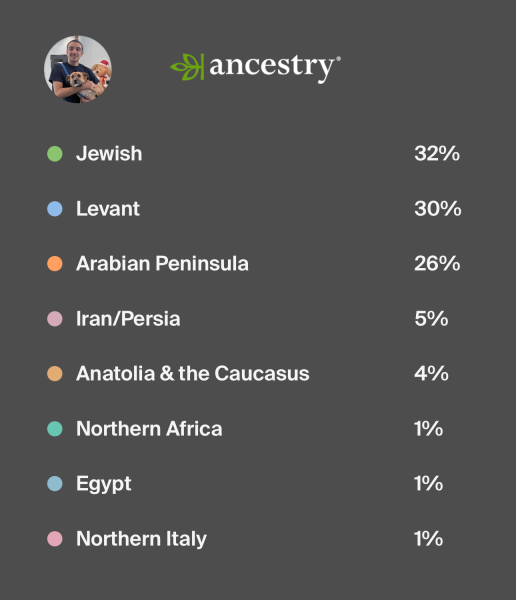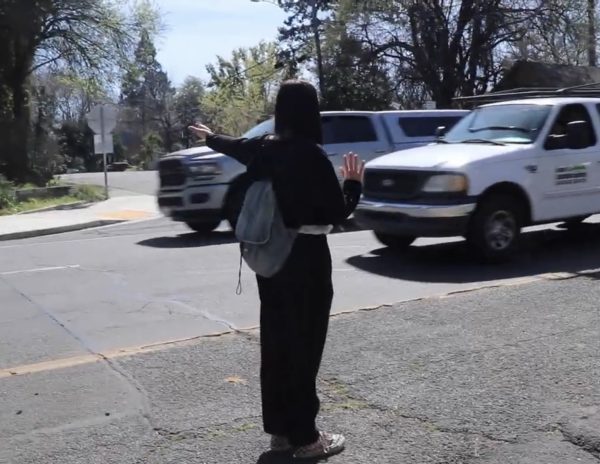Politics, legislation, and bills oh my!
Our country is in a politically polarized situation at the moment. From Trump’s attempts to reinsert himself into the Oval Office, to investigations revealing that he retained classified documents and to the overturning of Roe v. Wade, U.S. politics are not in prime form.
My family has a tendency to avoid the subjects of religion, sex and politics publicly in an attempt to keep things light and noncontroversial. Not that politics shouldn’t be discussed anyway.
At the end of September, California Governor Gavin Newsom finished up the 2022 legislative season by signing 997 bills into law, and vetoing 169 bills.
The bills span far and wide, with some discussing issues regarding college students, reproductive health care, mental health and gender, just to name a few.
College

Senate Bill 886, signed on Sept. 28, is designed to help fix the ongoing student housing crisis by excusing public college and university housing from regulations of the 1970s California Environmental Quality Act. It will still require student housing projects to be built on campus-owned lands, and cannot displace affordable housing.
However, the CEQA Act was designed to make agencies analyze and weigh the environmental damages in building projects. The act is not very popular, because it has caused many projects over the years to be delayed or canceled altogether — including UC Berkeley’s housing plan. If corporations don’t get to build their newest supercenter, of course, they’re going to get irritated. They don’t care if the environment gets the short end of the stick, as long as they get their money.
While universities may not be blood-sucking corporations, they do rely on the money from university housing. Housing at Chico State, including room, RHA fees and meal plan rates, costs on average $11,346. This sum is made over the course of eight payments. Broken down, this is around $1,418 per payment, not including any other existing fees.
Reproductive Health Care

Assembly Bill 2223, signed on Sept. 27, protects pregnant individuals who choose to get an abortion from being prosecuted. This was a part of California’s response to the overturning of Roe V. Wade. This came after Newsom promised Californians that “…women will remain protected here [in California].”
Other reproductive rights bills signed on Sept. 27, prevent licensing boards from punishing doctors and other medical professionals who perform abortions by revoking their licenses. Some prevent medical providers, health insurers and prison staff from releasing abortion-related medical records and identities to out-of-state law enforcement who want to use them to prosecute someone. Tech companies, such as Facebook and Google, will also be prohibited from releasing user information to out-of-state law enforcement who want to use it to prosecute someone. Those who want to have an abortion will also be able to find funding. Funds will come from a California grant program supported by the Abortion Practical Support Fund.
On June 24, 2022, Chico State President, Gayle E. Hutchinson, released a response to the overturning of Roe v. Wade.
“Many in our community, including myself, view reproductive rights and protections as fundamental human rights and find this decision extremely distressing,” Hutchinson said. “It is concerning that the Court reversed what had been a federally protected right for the last 50 years.”
Hutchinson also reassured students that Chico State would continue to provide reproductive health care services. Thankfully, our state’s representatives decided that they would support women and their inherent right to do whatever they want with their own bodies.
Gender

Senate Bill 107, signed Sept. 29, prevents the release of medical information regarding a person or entity who allows a child to receive gender affirming health and mental care. Especially in response to a criminal or civil action. It also prevents the arrest of people who allow a child to receive gender affirming health and mental care.
Newsom released a statement saying the hate demonstrated by state laws that demonize the transgender community is “unfathomable and has contributed to soaring suicide rates. 82% of transgender individuals have considered killing themselves, and 40% have attempted suicide, with suicides highest among transgender youth.”
Chico State is an advocate for gender affirming care, which they began offering after the 2018-2019 academic year, evident in that year’s WellCat Health Center annual report. The website says that they realize trans and non-binary students who go to the WCHC have had at least one unpleasant health care experience, and states:
“Health care shouldn’t be scary or off-putting; our goal is to provide a trusting, safe environment staffed with caring professionals that allow our students and staff to build the relationship necessary to provide excellent health care to our Trans and Non-binary students.”
Assembly Bill 1287, signed Sept. 27, will abolish the “pink tax” within the state of California. The “pink tax” is a price bump companies add to products marketed towards women. The bill authorizes an attorney general to seek a court order to stop violations, and courts to impose a penalty of as much as $10,000 for first violations and $1,000 for each subsequent violation.
Unfortunately, I wouldn’t be surprised if companies increase the cost of products marketed to all genders due to this loss of revenue. Additionally, the implementation of these fines may end up being arbitrarily enforced. Even if they are, $10,000 for first offenses and $1,000 for subsequent violations is nothing for corporate giants.
Mental Health

Assembly Bill 988 will work to help raise funds to support call centers and mobile crisis teams associated with the 988 federal mental health crisis hotline.
Despite concerns regarding the funding of the hotline, Newsom still signed the bill. There is funding on the county, state and federal levels, but this hasn’t placated concerns.
In an official statement, Newsom said, “While this bill attempts to provide those needed resources and policy direction, as drafted, the use of revenue generated is unduly restricted. This creates considerable confusion about how certain services will be financed, and could severely limit the full potential of the behavioral health crisis response promised by the bill.”
There is a national mental health service funding crisis. The U.S. government has been attempting to allocate funds, but it isn’t enough. Despite Chico State’s attempts to provide mental health services, there is a financial barrier. Even after President Hutchinson approved an increase to the Student Health Fee in May of 2018, which was designed to provide financial stability for five years, there still isn’t enough funding.
The WCHC 2018-2019 annual report says “…is not adequate to support the number of vacant positions that are critical to SHC. Positions include mental health providers, mid-level (Nurse Practitioners or Physician Assistants), Physicians, Medical Assistants, and Nurses.”
On another note, Newsom signed Senate Bill 1338, on Sept. 14, which allows courts in every county to “compel people with serious mental health issues into care and housing,” through CARE Court. Through this, people with severe mental health issues can be prioritized for support services during a year-long program. After which they can move on, or be referred for another year. However, if a person refuses to take part in the program, they can be considered for a conservatorship by the court.
In this case, the word “compel” seems to be politician-speak for “force.” Especially when you consider that whether someone is pushed into the program is considered by the administrators of the program, all of whom will inevitably have their personal agendas and biases. This appears to be another program that will be subject to selective enforcement.
For all we know this could lead to the development of harsher laws and programs for those with mental illnesses. When Newsom originally released his plans to create the CARE program earlier this year, he found a local sympathizer.
Max Steiner, one of two candidates currently running for District 1 Representative, visited my Writing for Mass Media class at the end of last semester. Toward the end of the class period, someone asked Steiner his opinion on Newsom’s plan to “compel” people into getting mental health help, to which he said that he supported Newsom’s plan. Steiner even went a step further by saying that he thought mental asylums should be re-institutionalized. This is highly alarming when you consider the history of mental asylums, where people with mental illnesses were often subject to abuse, neglect and mistreatment. Deinstitutionalization in California only began 50 years ago, and didn’t become effective until around 1981.
As Newsom ends the 2022 legislative period and as he prepares for the Nov. 8 election, I feel that he has greatly underestimated the potential issues he has caused. Especially, considering the potential that he may not be reelected, and may not be able to fix any damage that he caused by allowing courts to “compel” people into mental health care and universities to bypass environmental laws.
Ariana Powell can be found at [email protected].


















